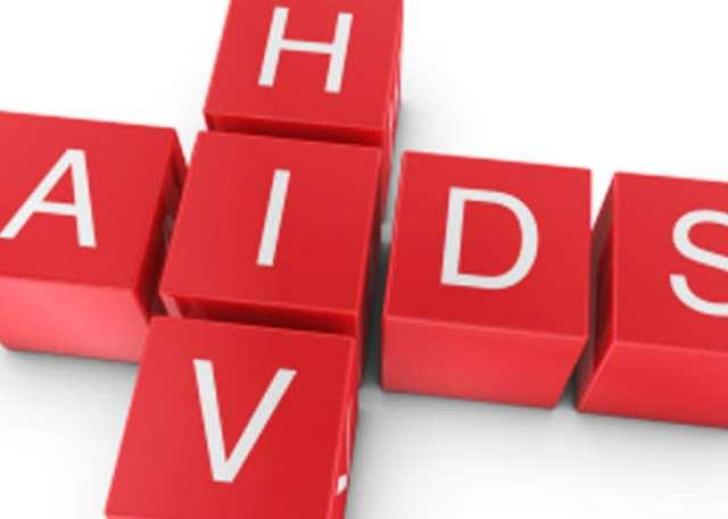News / National
Elderly overlooked in HIV prevention
13 Sep 2025 at 09:53hrs |
20 Views

Elderly Zimbabweans remain at risk of HIV infection because many believe the virus only affects young people, health experts have warned. This misconception, coupled with limited prevention programmes targeting older age groups, has left many vulnerable.
Mpilo Hospital Centre of Excellence medical director, Dr Nkazimulo Tshuma, raised the concern during a National Aids Council (NAC) media seminar in Esigodini, Matabeleland South, on Tuesday. Presenting on Ageing with HIV, Tshuma said many adults dismiss HIV as "a young people's disease," resulting in low risk perception and neglect of prevention methods such as condom use.
"Above 50, you are supposed to be wiser and have more information, but we still see new infections," she said. "Older adults underestimate their own vulnerability. Pregnancy is no longer a concern, so protection seems unnecessary. Yet cultural practices such as remarriage, widow inheritance and intergenerational sex expose them to risk."
Tshuma noted that HIV testing is rarely prioritised for older patients. "If you take your grandmother to a doctor, HIV test is not at the top of the list," she observed. This, combined with stigma and silence around sexuality in older age, prevents many from seeking information, testing, or prevention tools like PrEP.
She added that postmenopausal women are biologically more vulnerable due to low condom use in later-life relationships, while older men often engage in relationships with younger women, who may have higher HIV prevalence.
Beyond prevention, Tshuma highlighted the unique health challenges of ageing with HIV. People living with HIV (PLWH) over 50 face accelerated ageing and higher risks of chronic illnesses such as diabetes, hypertension and kidney disease. They are also three to four times more likely to suffer from bone disorders and fractures, and 1.5 times more likely to experience heart attacks than HIV-negative peers.
"Frailty in PLWH occurs at a younger age and is linked to multimorbidity, detectable viral load and low CD4 count," Tshuma said. "It increases risks of mortality, falls and poor health outcomes."
Mental health is another major concern. Many older PLWH struggle with depression, anxiety, and social isolation, compounded by loss of spouses, employment and financial independence.
Despite Zimbabwe's progress toward the UNAids 95-95-95 targets, Tshuma said the country's HIV response must adapt to the realities of ageing. "Ageing introduces new co-morbidity and frailty challenges. Integrated HIV and geriatric care is essential for quality of life. Targeted, inclusive interventions are needed to ensure healthy ageing with HIV," she urged.
Mpilo Hospital Centre of Excellence medical director, Dr Nkazimulo Tshuma, raised the concern during a National Aids Council (NAC) media seminar in Esigodini, Matabeleland South, on Tuesday. Presenting on Ageing with HIV, Tshuma said many adults dismiss HIV as "a young people's disease," resulting in low risk perception and neglect of prevention methods such as condom use.
"Above 50, you are supposed to be wiser and have more information, but we still see new infections," she said. "Older adults underestimate their own vulnerability. Pregnancy is no longer a concern, so protection seems unnecessary. Yet cultural practices such as remarriage, widow inheritance and intergenerational sex expose them to risk."
Tshuma noted that HIV testing is rarely prioritised for older patients. "If you take your grandmother to a doctor, HIV test is not at the top of the list," she observed. This, combined with stigma and silence around sexuality in older age, prevents many from seeking information, testing, or prevention tools like PrEP.
Beyond prevention, Tshuma highlighted the unique health challenges of ageing with HIV. People living with HIV (PLWH) over 50 face accelerated ageing and higher risks of chronic illnesses such as diabetes, hypertension and kidney disease. They are also three to four times more likely to suffer from bone disorders and fractures, and 1.5 times more likely to experience heart attacks than HIV-negative peers.
"Frailty in PLWH occurs at a younger age and is linked to multimorbidity, detectable viral load and low CD4 count," Tshuma said. "It increases risks of mortality, falls and poor health outcomes."
Mental health is another major concern. Many older PLWH struggle with depression, anxiety, and social isolation, compounded by loss of spouses, employment and financial independence.
Despite Zimbabwe's progress toward the UNAids 95-95-95 targets, Tshuma said the country's HIV response must adapt to the realities of ageing. "Ageing introduces new co-morbidity and frailty challenges. Integrated HIV and geriatric care is essential for quality of life. Targeted, inclusive interventions are needed to ensure healthy ageing with HIV," she urged.
Source - Newsday
Join the discussion
Loading comments…


































